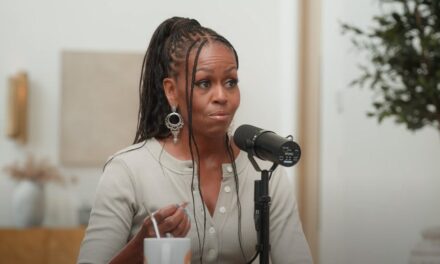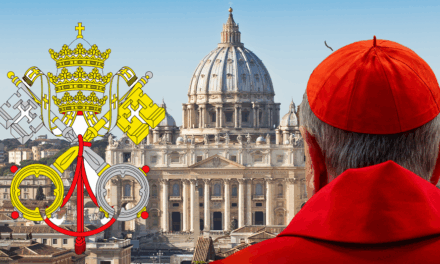A prominent liberal commentator has stirred controversy by asserting that the United States should be viewed as the “bad guy” on the world stage, suggesting that the country ought to face international sanctions similar to those imposed on North Korea. This statement has ignited a fervent debate about America’s role in global affairs, the ethical implications of its actions, and the potential consequences of imposing sanctions on a world superpower.
During a recent televised debate, the commentator expressed concerns over a range of American policies, including military interventions, foreign aid distribution, and trade practices that favor corporate interests over humanitarian needs. Drawing parallels with North Korea’s isolated stance and the sanctions that have been leveled against it by the international community, the pundit argued that the U.S. has, in many ways, acted contrary to global ethics and cooperation.
“When we look at the broader impact of American actions—whether it’s military interventions that destabilize whole regions or economic policies that exploit developing nations—it becomes clear that the United States has adopted a posture that can be seen as antagonistic to global wellbeing,” the commentator stated. “It is time for us to confront these actions and engage in a serious self-reflection.”
This viewpoint has attracted a mixed reaction from various sectors of the political landscape, with many liberal figures agreeing that the U.S. often acts in self-interest at the expense of global stability. Critics of the liberal stance, however, argue that such comparisons between the U.S. and North Korea oversimplify complex international relations and ignore the benefits that American global influence can bring.
The implications of such a statement have resonated across social media and news outlets, raising questions about American exceptionalism and foreign policy methodologies. Some supporters of the pundit’s claim emphasize the need for accountability in U.S. actions, calling for a reevaluation of how foreign interventions are handled, particularly in the context of humanitarian crises and international law.
One significant aspect of the discussion surrounds the notion of sanctions. The United States itself has positioned itself as a global leader in sanctioning nations that violate human rights and international norms. The country has a longstanding history of imposing economic sanctions against nations it perceives as threats, including not only North Korea but also nations like Iran and Venezuela. This raises ethical questions about what it means to impose sanctions—especially on a country like the United States, which wields considerable political and economic influence around the globe.
In response to the commentator’s remarks, skeptics have been quick to highlight the potential repercussions of treating the U.S. similarly to North Korea in terms of sanctions. A sanctions regime requires considerable international cooperation and could severely disrupt global markets and diplomatic relationships. “Sanctioning the United States would likely lead to unprecedented geopolitical tension,” a political analyst noted. “It could cause fractures in alliances that have taken decades to establish; it’s a slippery slope that could jeopardize international security.”
Advocates for a more responsible U.S. foreign policy argue that there is no need to impose sanctions when the country can pursue reformative policies. They advocate using diplomatic channels, global coalitions, and multilateral agreements to push for accountability and change. Promoting an international dialogue focused on mutual respect and sovereignty is seen as a more constructive approach than imposing punitive measures that could further alienate allies and adversaries alike.
The discussion has also rekindled a broader conversation about American leadership in the 21st century. With the rise of alternative power centers such as China and Russia, many observers question whether the U.S. can maintain its influence while engaging in actions that are perceived as imperialistic or coercive. The emphasis from various commentators is on the need for a reimagined approach to global engagement, one that reflects a commitment to collaboration rather than dominance.
Some experts propose that the U.S. could benefit from a more humble approach to foreign policy, acknowledging its role in contributing to global issues like climate change, displacement due to war, and economic inequality. By addressing these challenges in concert with other nations, the U.S. can restore its global standing and promote a narrative that fosters peace rather than discord.
Moreover, issues regarding race and representation within American foreign policy were also highlighted in the debate. The liberal commentator noted that marginalized communities, both at home and abroad, disproportionately bear the brunt of decisions made by those in power. This sentiment resonates with many activists who argue that the U.S. must confront the legacy of its actions, particularly concerning Indigenous populations and nations with colonial histories.
As the conversation continues, it remains to be seen how the remarks will influence American electoral politics in the upcoming elections. Progressive factions in both the Democratic and Republican parties are increasingly vocal about their dissatisfaction with traditional foreign policy narratives. The divide may compel candidates to clarify their positions on international sanctions, military involvement, and humanitarian aid, creating opportunities for reformist policies, whether those policies are centered on diplomacy or sanctions.
In essence, the clash of perspectives brings to light the moral ambiguities associated with U.S. foreign policy. Supporters of the liberal pundit might argue that harsh criticisms could push for meaningful change, while opponents warn that labeling the U.S. as a “bad guy” is counterproductive. It complicates relationships that have historically shaped the order of global politics.
In conclusion, the recently stated calls for the United States to be seen as akin to North Korea on the world stage by a liberal commentator illustrates not only the fractures within American political discourse regarding foreign policy but also highlights the growing urgency for a new global ethical baseline. As this debate unfolds, the necessity to balance national interests with global responsibilities will likely dictate the future course of American engagement in the international community. The discussions spurred by these comments may prompt both political leaders and citizens alike to reevaluate what American leadership should embody in practice, bridging the often vast gap between rhetoric and action.
































